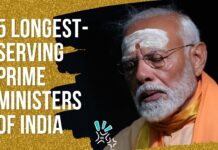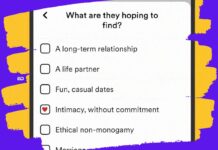Dating has become an integral part of modern life, transcending cultural boundaries and reshaping traditional norms. In countries like India, the shift from arranged marriages to self-chosen partners is becoming more common.
With changing demographics and expectations, new terms like “situationships” have emerged. The advent of Artificial Intelligence in matchmaking could soon revolutionize how we find partners. Apps like Bumble have introduced features such as “intimacy without commitment,” sparking debates about the future of dating.
The Rise and Challenges of Online Dating
Online dating apps like Bumble have revolutionized the way people meet and connect. However, there is growing discontent among young users.
According to Fortune, 79% of college students and other Gen Z members prefer in-person interactions over regular dating app usage. This shift indicates fatigue with endless swiping and frustration with the commercialization of emotions.
“Dating app burnout” is a real phenomenon, with users experiencing emotional exhaustion from the constant evaluation of potential partners based on curated profiles. Many see dating apps as a marketplace where people are reduced to products to be consumed quickly, which raises ethical concerns about the nature of modern dating.
The Controversial “Intimacy Without Commitment” Feature
Bumble’s new feature, “intimacy without commitment,” allows users to indicate their preference for casual connections without the pressure of a committed relationship. This feature has received mixed reactions.
Adrien describes it as a “double-edged sword,” suggesting it could bring clarity but also complicate intentions, leading to misunderstandings and hurt feelings.
Palak, a 17-year-old about to enter the dating scene, criticizes the feature for reducing people to mere products, arguing that it stifles the natural growth and evolution of relationships.
Athiya poetically adds that “intimacy is not something that just happens between two people; it is a way of being alive.” These people believe in the deeper emotional connections that transcend physical interactions.
Sanath believes it will lead to “lustful sex without any feelings involved” and considers it immoral. Mukul, on the other hand, sees it as providing better clarity on the nature of engagements but worries it might turn dating apps into mere hookup platforms.
There are also supporters like Chandrakana, who argue that the option is beneficial for those who need more time to commit. She believes that initial relationships focusing on mental and emotional bonding can gradually evolve into committed ones, suggesting a more nuanced understanding of intimacy.
Read more: What Is Snoozing; Is It The New Ghosting?
The Future of Online Dating
As reported by WION, Bumble expects revenue of $269 million in the second quarter, translating to $1.76 billion annually. Dating apps are profitable businesses, however, the introduction of features like “intimacy without commitment” raises questions about the direction these platforms are heading.
Will such options enhance the dating experience by defining boundaries, or will they exacerbate the commodification of relationships?
Ethically monogamous and polyamorous relationships are becoming more accepted, indicating a shift towards more personalized and varied approaches to love and commitment. This evolution reflects a broader trend of individuals seeking to break free from traditional societal expectations.
The introduction of features like “intimacy without commitment” on dating apps like Bumble has sparked significant debate. While some see it as a way to bring clarity and honesty to casual connections, others fear it reduces people to commodities and complicates the path to meaningful relationships.
The rise of online dating has undeniably changed how we find love, but it also brings new challenges and ethical considerations. As society continues to evolve, only time will tell if these innovations will lead to a more liberated dating culture or contribute to further emotional disillusionment.
Feature image designed by Saudamini Seth
Sources: WION, The Guardian, StoryPick
Find the blogger: Katyayani Joshi
This post is tagged under: Bumble, intimacy, commitment, relationships, intimacy without commitment, disillusionment, modern life, emotions, platforms, double edged sword, casual dating, Dating app burnout, Artificial Intelligence, emotional exhaustion, Gen Z, dating culture, lustful sex, loveless, commodification of relationships
Disclaimer: We do not hold any right, or copyright over any of the images used, these have been taken from Google. In case of credits or removal, the owner may kindly mail us.
Other Recommendations:
Is Bumble Trying To Characterize Tinder Users As “Loose” ?





























